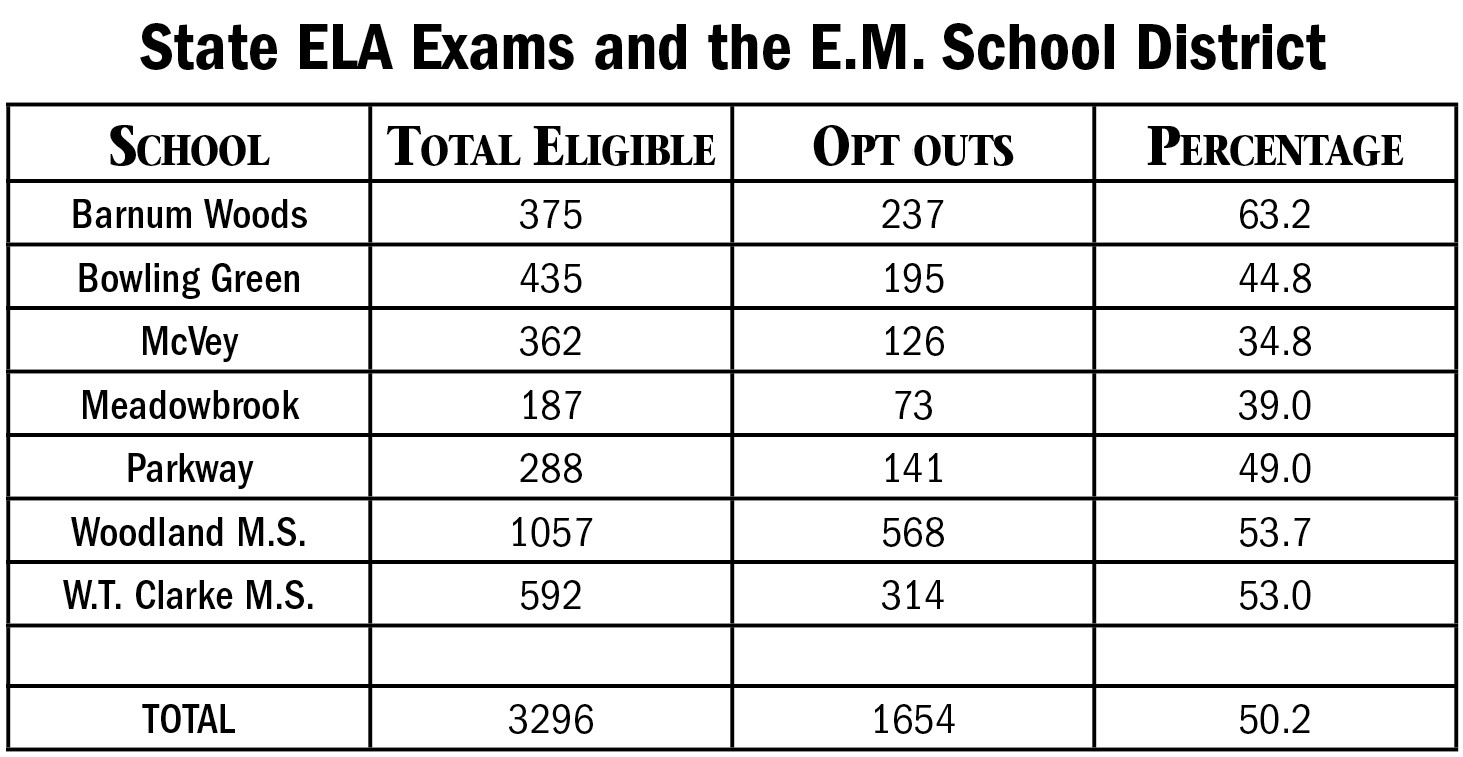East Meadow’s opt-out rate doubles for state ELA exams
The number of East Meadow students who refused the state English Language Arts assessments last week doubled from the total just one year ago, and Superintendent Leon Campo said that more than half of the students in seven district schools who were eligible for the tests opted out.
New York state adopted the Common Core State Standards in 2010, mandating implementation beginning the following summer. State officials said that the more rigorous standards are designed to make students more college- and career-ready, and the year-end exams help the Education Department measure their progress.
But parents across the state, and particularly on Long Island, have questioned the tests’ legitimacy as well as the disproportionate impact they believe the exams have had on both students and teachers in recent years. Some formed opt-out groups on Facebook, and more each year have elected to send school district officials letters stating that their children would not be taking the tests.
Of 3,296 ELA test-eligible East Meadow students in third through eighth grades this year, 1,654 refused the tests last week, or 50.2 percent. Last year, 24 percent of students did not take the exams, Superintendent Leon Campo said.
The state math assessments were scheduled for this week.
One of the reasons the refusal rate might have spiked, Campo said, is that the Board of Education published a position paper called “Where We Stand And Why” in July. The paper, which was sent to elected officials at all levels of government and can be found on the district website, criticized the Common Core curriculum’s reliance on high-stakes testing and its ties to teacher and administrator evaluations. It stated that test-based teacher evaluations are “fundamentally flawed, inaccurate and unjust,” and noted the stress the tests create in students, the extensive time teachers must devote to test preparation and the limited feedback the exams provide.
“Many parents look to our board for leadership on a given issue,” Campo said. “… I personally believe they are correct, and that the impact has not been positive.”






